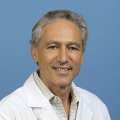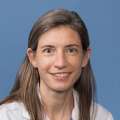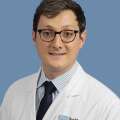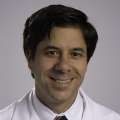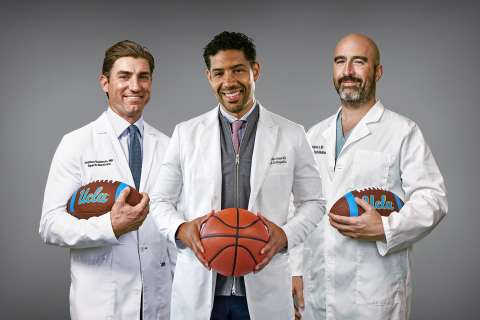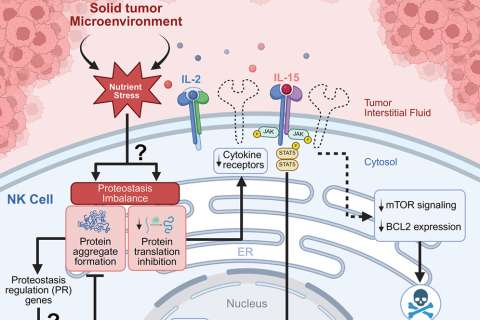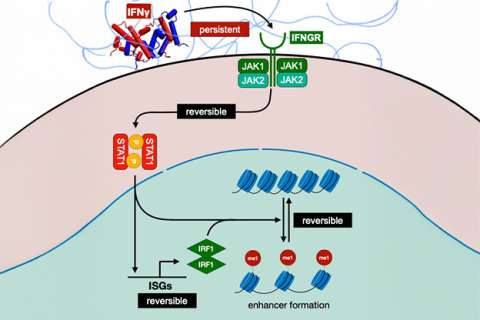World Parkinson’s Day 2023, Tuesday, April 11, marks the five-year anniversary of Laurie and Steven C. Gordon’s $25 million gift to UCLA, which established their Commitment to Cure Parkinson’s Disease at the David Geffen School of Medicine.
The gift, from the Steven Gordon Family Foundation, has funded diverse research projects that have contributed to the understanding of the neurodegenerative disease that some experts estimate affects 1 million Americans. It has also established a new faculty chair and brought a PET scanner, used for diagnosing and studying Parkinson’s, to the health system.
The goal? It’s what Steven Gordon calls “revenge research.”
“We don’t know any better way to get even with Parkinson’s than to do the research to get rid of it,” he says. “And UCLA is the place where that miracle could happen.”
There is currently no cure for Parkinson's disease. Though medications are available to help curb symptoms, such as tremors, rigidity, and slow movements, they’re ultimately an imperfect fix.
“They’re pretty good at alleviating symptoms for a number of years, but then they stop, and the disease progresses,” says S. Thomas Carmichael, MD, PhD, chair of UCLA’s Department of Neurology.
Other non-pharmaceutical methods, such as deep brain stimulation, may alleviate some symptoms, but not all. Dr. Carmichael says there likely won’t be one “magic bullet” for curing the disease.
“It’s going to be multifaceted,” he said. “You’re probably going to have to treat the abnormally accumulating proteins, but also the inflammation and the mitochondria.”
That’s why he’s pleased that 25 UCLA researchers from across the School of Medicine are currently a part of the Commitment to Cure Parkinson’s Disease.
“The Gordons’ funding has integrated junior and senior investigators, and investigators across departments. It’s brought together scientists who have studied Parkinson’s for years with those who have never studied the disease,” Dr. Carmichael says. “That kind of collaboration is ensuring that ideas are challenged and pushed further.”
A groundbreaking discovery’s next chapter
In 2006, Ming Guo, MD, PhD, the Laurie and Steven C. Gordon Chair in Neurosciences, and colleagues reported results from a landmark study on the role of the mitochondria in inherited forms of Parkinson’s disease. They discovered that two genes, PINK1 and PARKIN, work in tandem to form a pathway that controls the integrity and quality of mitochondria, which is the cell’s powerhouse. In certain patients with Parkinson’s, those genes are mutated, and the mitochondria malfunctions.
The finding opened up a new pathway of investigation for Dr. Guo, a neurologist who treats patients and also directs the National Institutes of Health-funded Aging Center at UCLA, and helped to establish her scientific legacy.
Fast-forward more than a decade, the Gordons’ $25 million gift established a chair position that was awarded to Dr. Guo and funded two new research projects that have led to pivotal discoveries.
In their first study that was supported by the Gordons’ gift, Dr. Guo and collaborators focused on how the health of the mitochondria is maintained — through fission, or one mitochondrion splitting in two, and fusion, which is when two become one. While it has been well-documented that the protein Drp1 is a master regulator of mitochondrial fission, little was known about which gene controls its function.
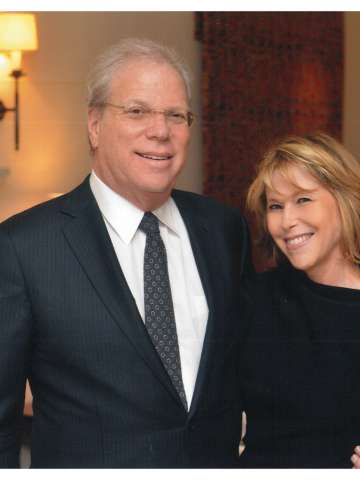
In a fruit fly model, the research team identified a gene called clueless (“because initially, we were clueless,” Dr. Guo says) that attracts Drp1 to mitochondria and triggers fission. When overexpressed, the clueless gene reversed the Parkinson’s disease pathology that was due to the PINK1/PARKIN mutation. The clueless gene in flies is an analogue for a protein in humans called CLUH. The findings were published in 2022 in Nature Communications.
In another study, published in Molecular Biology of the Cell, Dr. Guo’s research team found that overexpressing the atg1 gene also increased Drp1 protein levels, elevated autophagy (the cell’s process of breaking down and clearing out old, damaged proteins), and reversed mitochondrial defects in fruit flies with PINK1/PARKIN mutations.
“The Gordons’ gift has enabled us to continue our previous quest to find cures for Parkinson’s,” Dr. Guo says. “We now have identified two genes that could potentially reverse the pathology of the Parkinson’s, and we are closer to finding a cure for this devastating disease.”
The Gordons’ gift also has funded research projects led by:
- Jeff Bronstein, MD, PhD, a professor of Neurology, who is studying the link between proximity to pesticides application and Parkinson’s risk.
- Jose Rodriguez, PhD, the pioneer of a new molecular imaging technique called MicroED — short for “micro-electron diffraction” – which has allowed him to more closely study how harmful proteins clump together in the Parkinson’s brain.
- Nader Pouratian, MD, PhD, formerly of UCLA, who studies deep brain stimulation.
Parkinson’s researchers dive into the ‘Shark Tank’
Amid the COVID-19 pandemic, Dr. Carmichael was seeking ways to stimulate collaboration between scientists at UCLA who could potentially benefit from the Gordons’ next round of research funding. He reached out to department chairs throughout the university asking for researchers who were involved with — or adjacent to — Parkinson’s research in any capacity.
Twenty-five scientists responded. From there, the group convened regularly via Zoom, sharing ideas, successes, and challenges.
Then, in 2022, Dr. Carmichael had another idea: In the spirit of the hit reality show “Shark Tank,” the group would split into teams or pairs, develop a research project, and present it to a team of judges. The prize? A cut of the $25 million gift to bring their idea to life.
In addition to evaluating the projects based on criteria such as feasibility and creativity, the judges were also looking for how each project would “lead to competitive greatness,” Dr. Carmichael says. The term was coined by John Wooden, who won 10 NCAA national championships as head coach of the UCLA Bruins basketball team from 1948 to 1975.
“Competitive greatness is at the top of Wooden’s ‘Pyramid of Success,’ and I think it’s what defines a successful research project,” Dr. Carmichael says. “So, for each project, we asked, ‘Does this elevate the investigator and the institution because it’s so good?”
The competition was a hit, and two teams came out on top:
- Katy Cross, MD, PhD and Nanthia Suthana, PhD: The pair — a movement disorders specialist and a neuroscientist — are using virtual reality to study “freezing” episodes in patients with Parkinson’s.
- William Zeiger, MD, PhD, Chao Peng, PhD and Carlos Portera-Cailliau, MD, PhD: The researchers are studying a mouse model of Parkinson’s to investigate how accumulation of the toxic protein alpha-synuclein affects the function of specific circuits in the brain.
Steven and Laurie Gordon's engagement in the Shark Tank competition and the UCLA research enterprise has been critical, according to Dr. Carmichael.
“Their involvement continues to drive energy and interest in Parkinson’s research as so many scientists and clinicians come together to find treatments and cures,” he says.
Lauren Ingeno is the writer of this article.



